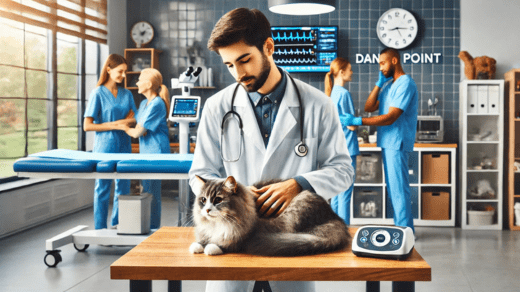When our pets face emergencies, having a reliable place for immediate care is vital. Animal hospitals are designed to handle these urgent situations with precision and care. These facilities offer comprehensive services to ensure your pet gets the attention they need. At an animal hospital in Dana Point, for example, the team is ready to manage a variety of emergencies. They handle everything from injuries to sudden illnesses. Trained professionals work with the right equipment to provide swift and effective treatment. Veterinary staff are skilled at diagnosing problems quickly, ensuring the best outcome for your pet. They prepare for emergencies by keeping supplies organized and equipment up-to-date. The staff also train regularly to stay current with best practices in veterinary care. The combination of skilled staff, proper resources, and timely intervention makes animal hospitals an essential part of pet healthcare. They are places of trust and expertise in times of need.
The Role of Emergency Animal Hospitals
Emergency animal hospitals operate much like human emergency rooms. They provide crucial services around the clock. Unlike regular veterinary clinics, these hospitals are equipped to handle severe and life-threatening conditions. The facilities are stocked with the necessary medications and equipment to respond swiftly. This readiness ensures that your pet receives immediate care when every second counts.
Common Pet Emergencies
Understanding common pet emergencies can help you react better in critical situations. Here are a few scenarios where an animal hospital’s intervention is necessary:
- Poisoning: Pets often ingest harmful substances. Chocolate, certain plants, and household cleaners are common culprits.
- Trauma: Accidents like falls or being hit by a vehicle require urgent care.
- Breathing difficulties: Obstructions or infections can cause severe respiratory issues.
How Animal Hospitals Prepare
Animal hospitals prepare for emergencies through a series of steps:
- Stocking essential medications and equipment.
- Training staff to handle various emergencies efficiently.
- Maintaining updated medical protocols to ensure best practices.
These measures ensure that pets receive the best possible care during their time of need.
Comparing Animal Hospitals and Regular Clinics
Animal hospitals and regular veterinary clinics both play vital roles in pet health. However, their services differ significantly, especially in emergencies:
| Aspect | Animal Hospital | Regular Clinic |
| Availability | 24/7, including holidays | Limited to regular business hours |
| Emergency Services | Comprehensive emergency care | Basic first aid often refers to hospitals |
| Equipment | Advanced, for critical care | Basic, for routine checks |
Importance of Choosing the Right Facility
Choosing an appropriate facility for your pet’s emergency care can make all the difference. Not all veterinary clinics can provide the same level of emergency care as a dedicated animal hospital. Researching options in advance and knowing the closest emergency facility can save precious time in a crisis.
Trust and Expertise in Animal Hospitals
Animal hospitals are staffed with professionals who have specialized training in emergency care. This expertise is comparable to the specialized training seen in human trauma centers. The confidence in their skills and the advanced facilities offer reassurance to pet owners during stressful times.
Conclusion
Animal hospitals are crucial when emergencies strike. Their round-the-clock service and specialized staff ensure your pet receives the best care possible. By understanding the differences between regular clinics and animal hospitals, you can better prepare for any pet emergencies. These hospitals stand ready to provide life-saving care with competence and compassion. For more information on pet emergency care, you can visit AVMA’s Emergency Care Guide.




